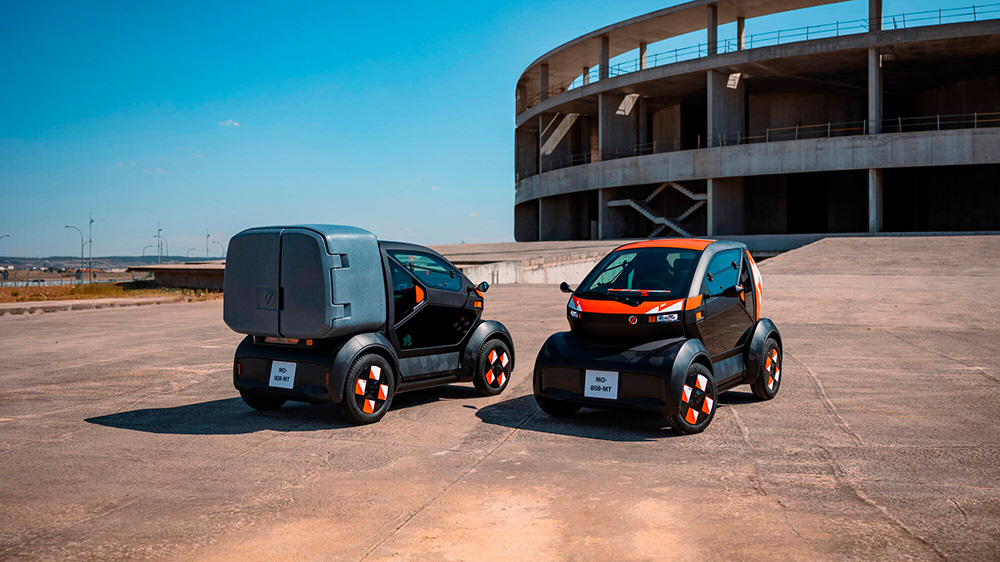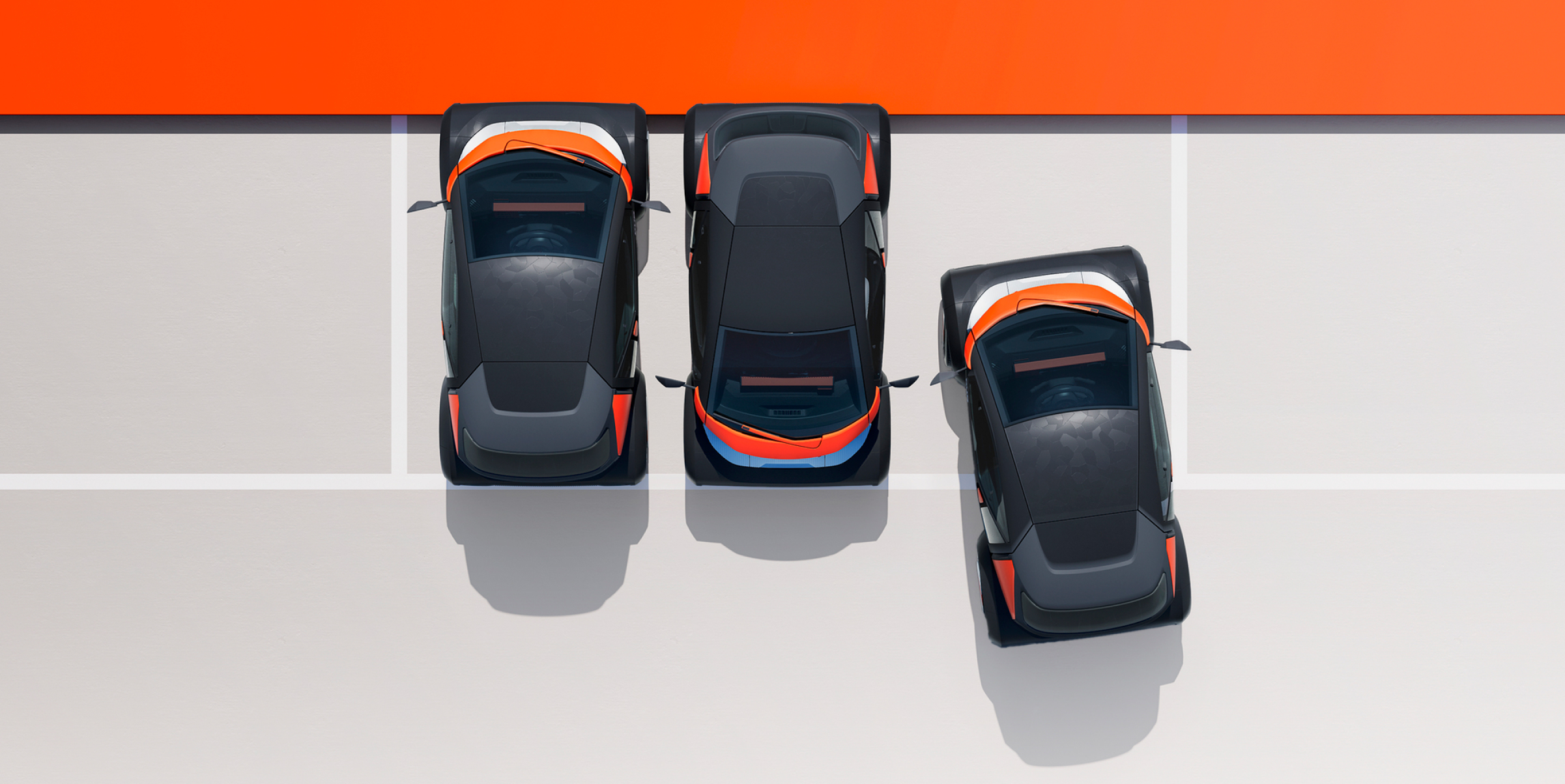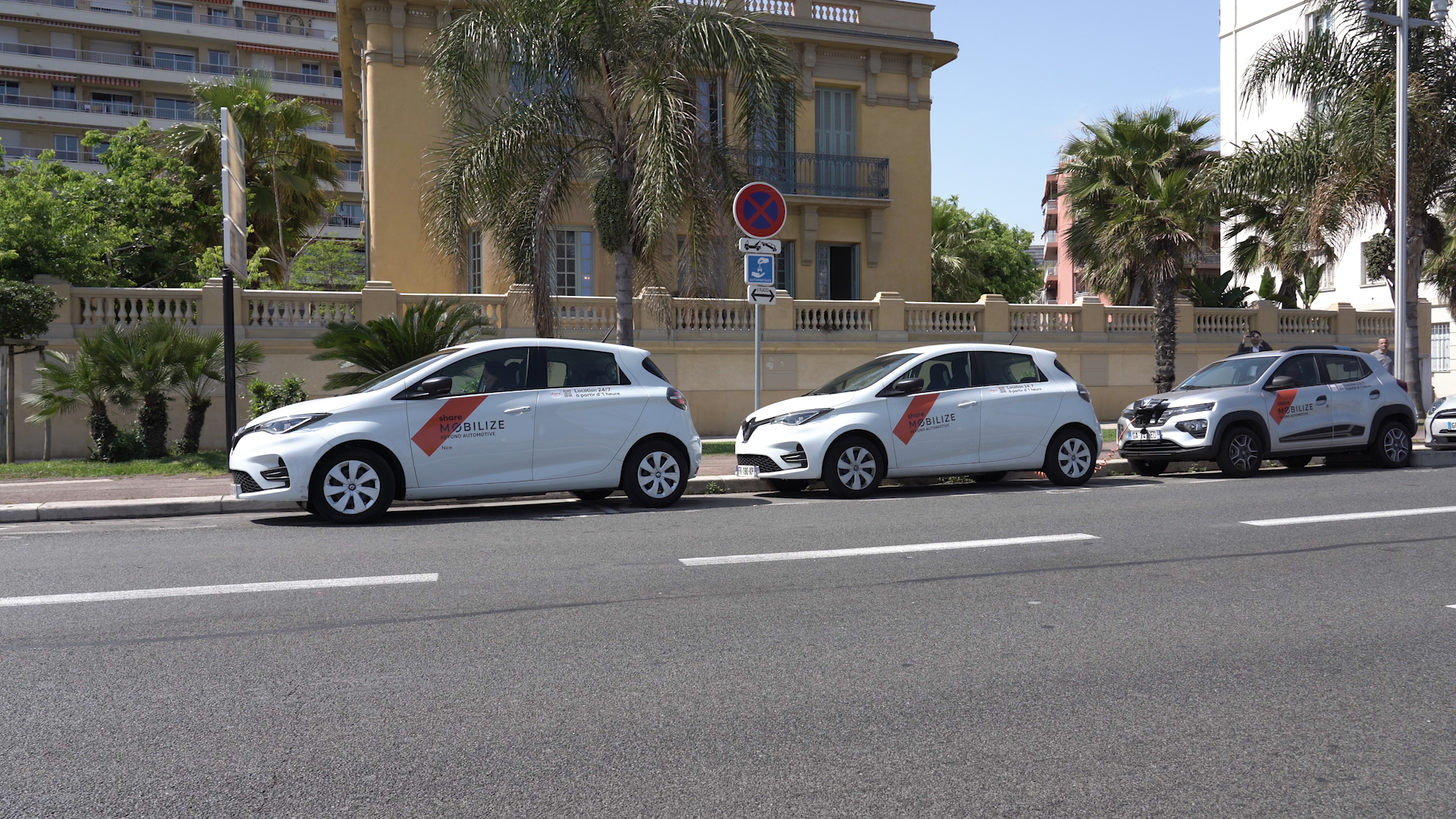car sharing has many faces
Car sharing provides users with vehicles on a self-service basis, 24/7 for the duration and destination of their choice. There are several types of car sharing.
Closed-loop : the vehicle is returned to the departure station or even to a dealership, as is the case with the Mobilize Share service.
Direct trace : the vehicle is returned to a station that may be different from the one from which it left.
These two types of car sharing require prior reservation.
Free-floating : the vehicle is parked on the street. It can be borrowed without reservation and returned to any on-street parking space within the geographical area covered by the service operator. The customer geolocates the vehicle using a dedicated smartphone application. Free-floating car-sharing is particularly suited to large cities. Zity by Mobilize is an example of free-floating car-sharing in Madrid, Lyon and Milan.
In addition to these three forms of car-sharing, there is also car-sharing between private individuals, often facilitated by a car-sharing platform.
car sharing and shared mobility meet their target audience
Car sharing is a growth sector, despite a pause in growth in 2020 and 2021 at the time of the health crisis, despite systematic measures to disinfect vehicles. There are around 50,000 shared vehicles in Europe, mainly in 5 countries, including 18,500 in Germany and 12,000 in France.
Of course, if you add in self-service scooters and bicycles, the figures explode. There are almost 400,000 shared mobility devices in Europe, more than half of which are scooters. Berlin and Paris have the highest volume, with a density of around 100 shared ‘vehicles’ per 10,000 inhabitants. Oslo, however, takes the prize for density, with 400 shared cars, bikes or scooters per 10,000 inhabitants.
car sharing, car hire, car-pooling… the differences are clear
Traditional car hire is based on handing over the keys to the car via an agency. Car sharing, on the other hand, makes the vehicle available on a self-service basis. This makes it particularly flexible. The car sharing service is available 24 hours a day, 7 days a week, for journeys lasting from a few minutes to several days. Mobilize Share is an example of a service that is positioned both in traditional car rental, thanks to the density of the Renault network’s geographical coverage, which offers a large number of pick-up and drop-off points, and in closed-loop car sharing.
Car pooling, on the other hand, resembles private car sharing, with the difference that the owner of the car and the “car pooler” make the same journey and that the owner of the vehicle drives. Carpooling is organised directly between private individuals or via a platform. It can be used for daily commuter journeys or longer exceptional journeys. Carpooling is a real success thanks to its economical nature. The passenger’s financial contribution is a participation in the costs of using and maintaining the vehicle. In France, it is now estimated that the number of carpooling journeys will increase more than 3-fold between 2022 and 2023, representing almost 0.9% of car journeys.
car sharing, for who and what?
An Ademe survey dating from 2022 in France shows that closed-loop car sharing is the most widespread, both in terms of the number of operators and territorial coverage. On average, it concerns journeys of less than 5 hours and less than 50 kilometres. For free-floating car sharing, rentals are shorter, averaging less than 1 hour and less than 20 kilometres. But what really differs are the usages. Closed-loop car sharing is used for non-constrained or even recreational purposes, whereas free-floating car sharing is more often used for everyday journeys. In both cases, these journeys are mainly made within the city of residence.
Another interesting fact is that the use of car sharing within a household coincides for almost 70% with the abandonment of car ownership, otherwise known as ‘demotorisation’. Today, only 26% of ‘car-sharers’ own a car. As a result, they are more inclined to use public transport and soft mobility than the average population. Is demotorisation the consequence of car sharing, or is car sharing the consequence of demotorisation? One thing is certain: the most emblematic car sharing customer resides in a city that offers nearby centres of interest that are relatively close to each other and to homes, that provides practical alternatives to the car, such as public transport or cycle paths, and that even discourages the use of certain vehicles by restricting traffic, reducing parking facilities, etc.
However, car sharing is just as likely to apply to users outside built-up areas, thanks in particular to the private use of fleets of business vehicles, as well as the availability of vehicles at shop exits… Many possibilities are already being explored and are only waiting to be developed.






